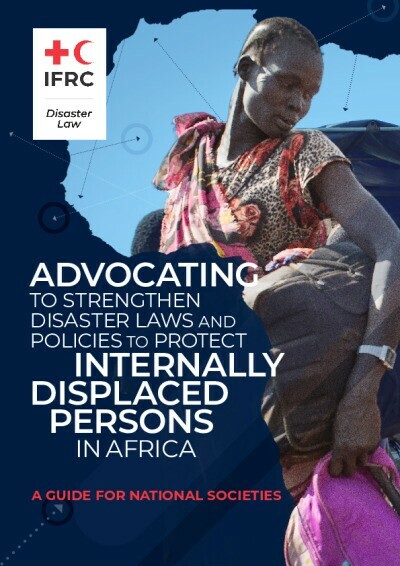
A new guide, Advocating to strengthen Disaster Laws and Policies to protect internally displaced persons in Africa – A guide for National Societies, has been published by IFRC Disaster Law to help Red Cross and Red Crescent Societies advocate for climate-smart disaster laws and policies that incorporate the protection of internally displaced people.
Disaster and climate related internal displacement is being faced by communities and governments across Sub-Saharan Africa. However, internal displacement and planned relocation are rarely adequately addressed in law or policy.
Strengthening laws and policies is essential to holistically addressing disaster and climate related internal displacement that forces millions of people from their homes by violence, conflict and disasters.
Research has found that displacement can have devastating effects both on those being displaced, as well as the communities that receive them. The African continent is particularly vulnerable to climate change related threats and displacement, with figures of 3.4 million displaced persons in Sub-Saharan Africa in 2019 due to disasters alone.
New laws and policies must move beyond aspirational statements by mandating practical measures to meet the assistance and protection needs of those displaced, as well as those of the host communities which receive them, and must provide for longer term support to mitigate risk, recover and support the realisation of durable solutions.
As auxiliaries to public authorities in the humanitarian sphere and being anchored in the communities which they serve, National Red Cross and Red Crescent Societies are well-placed to carry out advocacy activities in the interests of the most vulnerable, advocate for stronger disaster risk management and related laws and policies that ensure legal preparedness for disasters, and which address disaster and climate related internal displacement; and advocate to ensure access to internally displaced persons in the event of a disaster.